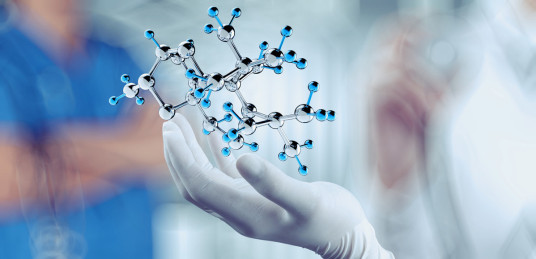
The study, by clinical genetic testing company Invitae, revealed that tests for breast and bowel cancer risk by direct-to-consumer companies such as 23andMe give negative results to the vast majority of those carrying DNA mutations in the genes under investigation.
“These tests should not be taken at face value at all, whether they are positive or negative,” said Edward Esplin from Invitae ahead of the annual meeting of the American Society of Human Genetics in Houston, Texas.
“The data really underscores that there needs to be increased awareness that results from this type of screening may not be wrong but they’re woefully incomplete.”
The research also showed that those from Asian and African-American backgrounds were more likely to carry mutations that were not designed to be detected by the consumer tests.
The research focused on DNA-based tests relating to breast, ovarian and bowel cancer that were recently approved by the US Food and Drug Administration.
The tests operate by a subject sending a DNA swab in the post for analysis and then receiving results with information about how their genetics could influence their health.
In the case of breast and ovarian cancer, the FDA has approved a screening test for three specific mutations on the BRCA1 and BRCA2 genes, which are most common in people of Ashkenazi Jewish heritage. However, these mutations are rare in people from other backgrounds.
Similarly, for bowel cancer, 23andMe offers FDA-authorised tests for two mutations, which are most common among individuals of northern European ancestry. The company explains the limitations of these tests to consumers and on its website.
Esplin said that despite this, consumers could be wrongly reassured by a negative result.
The study analysed the DNA of 270,806 patients who had been referred by healthcare providers for testing of the MUTYH gene, and 119,328 who had been referred for BRCA1/2 genetic testing.
It showed that for both tests, the majority of those carrying mutations would not be spotted, which Invitae describes as a “clinical false-negative result”.
For MUYTH, 40% of individuals with mutations in both copies of their MUTYH genes – consistent with an almost 100% lifetime risk of bowel cancer – had different mutations to those screened for in the FDA-approved test. This figure rose to 100% for those from Asian backgrounds and 75% for African-Americans.
For BRCA genes, 94% of non-Ashkenazi Jewish individuals and 19% of those of Ashkenazi heritage had a mutation that would be missed. Again, the figures were highest for those of Asian (98%) and African-American (99%) ancestry.
“A clinical false-negative result can be incorrectly reassuring, excluding a patient from receiving the preventive care they need based on their risk,” he added. “It could be the difference between preventing cancer and developing cancer.”
In response to the findings, 23andMe said in a statement: “The claims made by a competitor that we are returning ‘clinical false negatives’ is incorrect and a false characterisation of 23andMe’s test. Our test is extremely accurate. As part of the FDA authorisation process we’ve demonstrated over 99% accuracy for the variants we test for in our health product.”
The company said it makes clear to customers that it tests only for certain genetic variants and that customers should not forgo any recommended testing based on 23andMe results. “23andMe is not a diagnostic test,” the company said. “If an individual has a family history of cancer or other indications for clinical testing we always recommend consulting a healthcare provider first.”
Prof Anneke Lucassen, a clinical geneticist at the University of Southampton, said that, in her experience, non-specialists would be likely to wrongly interpret negative results as an “all-clear”.
“I do think the ‘false-negative’ rate is an issue, not necessarily through the companies’ fault but through low general awareness,” she said. “Most people who come to clinic ask: ‘Have I got the gene for breast cancer?’ and imagine it’s a single test, not that the test involves looking through around 20,000 letters of the genetic code to see if any one of them might be different.”



